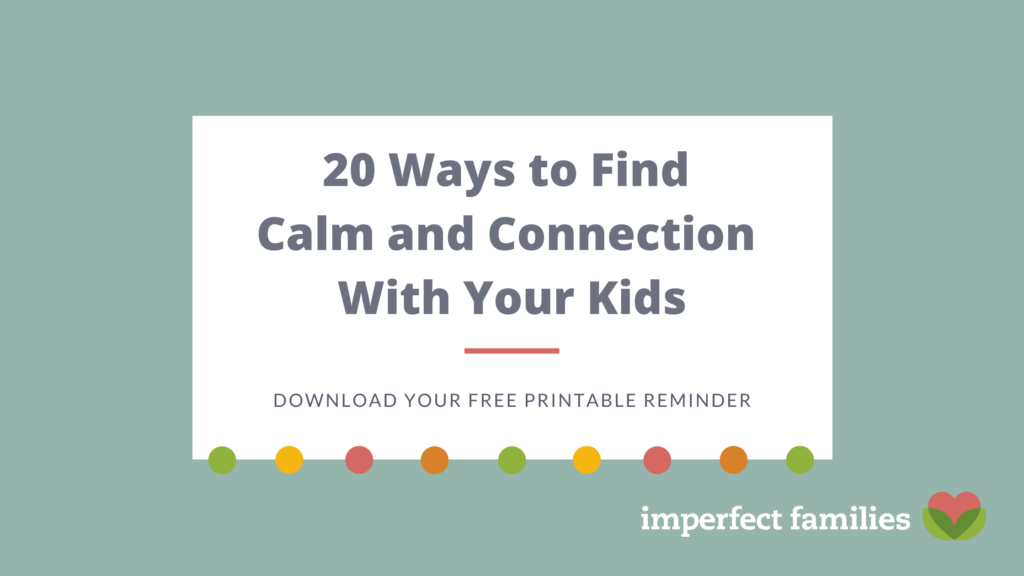
“I try to talk to him, but he just grunts a one-word reply.”
“I never know what’s going on in school, my kids never say anything more than, ‘fine’ or ‘ok.'”
So frustrating, right?
You make the effort and are met with silence.
Unfortunately, we can’t change our kids, but we can change the way we interact with them.
Take a look at this list and see if any might apply to you. Then, give some of the alternatives a try.
5 reasons your kids don’t talk to you (and what to try instead):
- You solve their problems: Parents often assume that their children want advice or solutions to their problems. Instead of listening to the child and hearing their point of view, we jump in with our own opinions and thoughts.
- Ask, “do you want help solving this problem?”
- Encourage brainstorming and problem-solving
- Let your child try their own ideas, even if it might not be the perfect solution
- You talk too much: If you child is more introverted, they may need time to be quiet, time alone or time to process what you’re asking. If your child is more extroverted, they may need more time to talk.
- Ask open-ended questions, then wait for their reply
- Listen without interrupting
- Support with silence
- You’re judgmental: Your child may not talk to you because they are afraid of your response. They may feel that you will criticize their decisions, say something negative about a friend, or give a consequence.
- Watch your response, stay neutral
- Ask questions to get more details instead of jumping to conclusions
- Check in with how your child feels or what they think, “How did that make you feel?” or “What do you think about that decision?”
- You’re distracted: Your child may be ready to talk, but you’re not picking up on the cues because you are busy. Or, your child may be tired of competing with your phone or computer for attention.
- Monitor your distraction level throughout the day, what needs to change?
- Put your phone away during transitions, especially when your child comes home from school or you return home from work
- If you really are busy, reschedule, “I want to give you my full attention, I’m going to send this email, then I’ll be able to really focus.” (Remember to follow through!)
- You pressure them to talk: When parents are concerned about their kids, they often push to find out what’s wrong. It’s frustrating to ask questions without getting a response, and it’s hard when our kids don’t know why they are struggling.
- Find alternatives to asking, “why”
- Keep communication open, “I’m here when you’re ready to talk.”
- Use a journal or art activity to help them express their thoughts or feelings
Sometimes, families get stuck in negative communication patterns. By changing the way you talk with your kids, you are changing the pattern.
You may need to try a few things before you find the one that works best for your kids. But, with time, they will notice your effort and (maybe slowly) begin to open up.



Comments have been turned off to retain the privacy of all families. If you have a question or comment on the topic, you're always welcome to contact me.